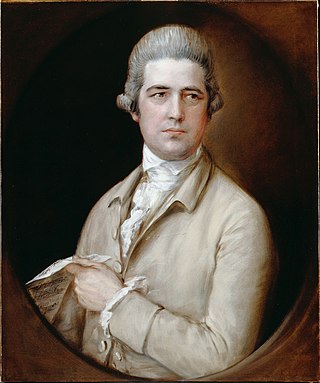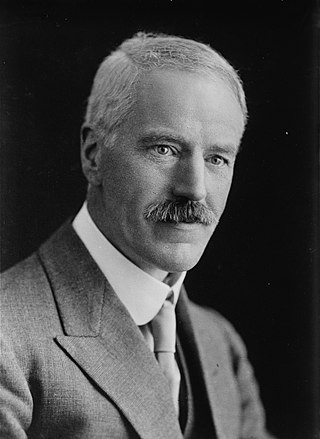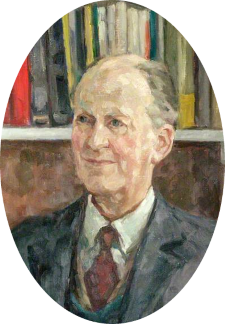Related Research Articles

Herbert Norman Howells was an English composer, organist, and teacher, most famous for his large output of Anglican church music.

Sir John Stainer was an English composer and organist whose music, though seldom performed today, was very popular during his lifetime. His work as choir trainer and organist set standards for Anglican church music that are still influential. He was also active as an academic, becoming Heather Professor of Music at Oxford.
Richard Farrant was an English composer, musical dramatist, theatre founder, and Master of the Children of the Chapel Royal. The first acknowledgment of him is in a list of the Gentlemen of the Chapel Royal in 1552. The year of his birth cannot be accurately determined. During his life he was able to establish himself as a successful composer, develop the English drama considerably, found the first Blackfriars Theatre, and be the first to write verse-anthems. He married Anne Bower, daughter of Richard Bower who was Master of the Chapel Royal choristers at the time. With Anne he conceived ten children, one of whom was also named Richard.

Thomas Linley was an English bass and musician active in Bath, Somerset. Born in Badminton, Gloucestershire, Linley began his musical career after he moved to Bath at age 11 and became apprentice to the organist Thomas Chilcot. After his marriage to Mary Johnson in 1752, Linley at first supported his wife and growing family predominantly as a music teacher. As his children grew and he developed their musical talent, he drew an increasing amount of income from their concerts while also managing the assembly rooms in Bath. When the new Bath Assembly Rooms opened in 1771, Linley became musical director and continued to promote his children's careers. He was eventually able to move to London with the thousands of pounds which he had amassed from their concerts.

Andreas Hammerschmidt was a German Bohemian composer and organist of the early to middle Baroque era. He was one of the most significant and popular composers of sacred music in Germany in the middle 17th century. He was nicknamed the "Orpheus of Zittau".
Robert White probably born in Holborn, a district of London, was an English composer whose liturgical music to Latin texts is considered particularly fine. His surviving works include a setting of verses from Lamentations, and instrumental music for viols.

Sir Ivor Algernon Atkins was the choirmaster and organist at Worcester Cathedral from 1897 to 1950, as well as a composer of songs, church music, service settings and anthems. He is best known for editing Allegri's Miserere with the famous top-C part for the treble. He is also well known for "The Three Kings", an arrangement of a song by Peter Cornelius as a choral work for Epiphany.

Sir Thomas Henry Wait Armstrong was an English organist, conductor, composer and educationalist. He was from a musical family and his early career was as a church and cathedral organist. From the 1920s onwards he was a broadcaster for the BBC giving talks as well as playing.
Capel Bond was an English organist and composer.
Richard John Samuel Stevens was an English composer and organist.

Richard (Irven) Purvis was an American organist, composer, conductor and teacher. He is especially remembered for his expressive recordings of the organ classics and his own lighter compositions for the instrument.
Sir Percy Carter Buck was an English music educator, writer, organist, and composer.
Henry Hiles was an English composer, organist, writer, and music educator.
Richard Wainwright was an English church organist and composer, son of John Wainwright. He was an organist at St Ann's in Manchester, and succeeded his brother Robert as organist at the Manchester Collegiate Church in 1775. Following Robert's death in 1782, Richard once again succeeded him, this time as organist at St Peter's in Liverpool. After spending some time in Preston and then at St James in Toxteth Park, Liverpool, Richard returned to St Peters in 1813 and remained there until his death.
Richard Goodson was an English musician and composer, who held the post of Heather Professor of Music at the University of Oxford.

Osbert Parsley was an English Renaissance composer and chorister. Few details of his life are known, but he evidently married in 1558, and lived for a period in the parish of St Saviour's Church, Norwich. A boy chorister at Norwich Cathedral, Parsley worked there throughout his musical career. He was first mentioned as a lay clerk, was appointed a "singing man" in c. 1534, and was probably the cathedral's unofficial organist for half a century. His career spanned the reigns of Henry VIII and all three of his children. After the Reformation of 1534, the lives of English church musicians changed according to the official policy of each monarch.
Richard Langdon was a British organist, mainly at Exeter Cathedral, where he spent his early years, and later at Bristol Cathedral and Armagh Cathedral. He also composed church music.

The Church of St Mary, also known as Lowgate St Mary, is a Church of England parish church in Kingston upon Hull, East Riding of Yorkshire. The church is a grade II* listed building.
Nikolaus Hasse, sometimes spelled Nicolaus Hasse, was a German composer and organist of the Baroque period. Part of the Hasse family of musicians, he was the son of Peter Hasse. A longtime organist at St. Mary's Church, Rostock, he is best remembered today for his compositions of chamber music and sacred songs.
The largest city in Mecklenburg-Vorpommern, Rostock is an important cultural center in Northern Germany. Records of the history of music in Rostock stretch back to the 13th century.
References
- ↑ Lewis Reece Baratz (2001). "Justice, Richard". Grove Music Online . Oxford Music Online. Oxford University Press. doi:10.1093/gmo/9781561592630.article.42832.